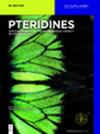Correlation of salivary neopterin and plasma fibrinogen levels in patients with chronic periodontitis and/or type 2 diabetes mellitus
IF 0.9
4区 医学
Q4 BIOCHEMISTRY & MOLECULAR BIOLOGY
引用次数: 3
Abstract
Abstract Neopterin is a novel predictor for coronary events especially in diabetic patients and also an indicator for the effectiveness of the periodontal treatment. In this study, we assessed whether salivary neopterin can be used as a potential biomarker in evaluating the risk of cardiovascular disease in type 2 diabetic patients with chronic periodontitis. Forty subjects between 25 and 75 years of age and who matched the criteria were selected and divided into four groups. Their periodontal status was evaluated. Stimulated whole saliva and blood were collected for analysis of salivary neopterin and fibrinogen and HbA1c levels, respectively. Nonsurgical periodontal therapy was carried out. Patients were recalled after 3 months, and the same procedure was repeated. A reduction in all the parameters was seen after treatment in all the four groups. Salivary neopterin levels showed significant difference (p<0.001) in the values between the study groups and the control group before treatment. After 3 months of treatment, salivary neopterin levels showed a statistical significant reduction (p<0.001) in all the study groups. Neopterin could serve as an effective tool to assess the inflammatory process related to periodontitis and diabetes mellitus and also predict future cardiovascular events in diabetic patients.慢性牙周炎和/或2型糖尿病患者唾液新蝶呤与血浆纤维蛋白原水平的相关性
新蝶呤是一种新的预测冠状动脉事件的指标,特别是糖尿病患者,也是牙周治疗效果的指标。在这项研究中,我们评估了唾液新蝶呤是否可以作为评估2型糖尿病合并慢性牙周炎患者心血管疾病风险的潜在生物标志物。40名年龄在25岁到75岁之间、符合标准的受试者被选中并分为四组。评估他们的牙周状况。收集受刺激的全唾液和血液,分别分析唾液中新蝶呤、纤维蛋白原和HbA1c水平。进行非手术牙周治疗。3个月后召回患者,并重复相同的程序。在所有四组治疗后,所有参数均有所降低。研究组与对照组治疗前唾液新蝶呤水平差异有统计学意义(p<0.001)。治疗3个月后,各研究组唾液新蝶呤水平均有统计学意义的降低(p<0.001)。新蝶呤可作为评估牙周炎和糖尿病相关炎症过程的有效工具,并可预测糖尿病患者未来的心血管事件。
本文章由计算机程序翻译,如有差异,请以英文原文为准。
求助全文
约1分钟内获得全文
求助全文
来源期刊

Pteridines
生物-生化与分子生物学
CiteScore
1.20
自引率
25.00%
发文量
6
审稿时长
>12 weeks
期刊介绍:
Pteridines is an open acess international quarterly journal dealing with all aspects of pteridine research. Pteridines are heterocyclic fused ring compounds involved in a wide range of biological functions from the color on butterfly wings to cofactors in enzyme catalysis to essential vitamins. Of the pteridines, 5,6,7,8-tetrahydrobiopterin is the necessary cofactor of several aromatic amino acid monoxygenases, the nitric oxide synthases and glyceryl ether monoxygenase (GEMO). Neopterin plays an essential role in the immune system and is an important biomarker in laboratory medicine for diseases such as HIV, cardiovascular disease, malignant tumors, among others.
Topics:
-Neopterin, dihydroneopterin, monapterin-
Biopterin, tetrahydrobiopterin-
Folates, antifolates, riboflavin-
Phenylalanine, tyrosine, phenylketonuria, serotonin, adrenalin, noradrenalin, L-DOPA, dopamine, related biogenic amines-
Phenylalanine hydroxylase, tyrosine hydroxylase, tryptophan hydroxylase, nitric oxide synthases (iNOS), alkylglycerol monooxygenase (AGMO), dihydropterin reductase, sepiapterin reductase-
Homocysteine, mediators of inflammation, redox systems, iron.
 求助内容:
求助内容: 应助结果提醒方式:
应助结果提醒方式:


